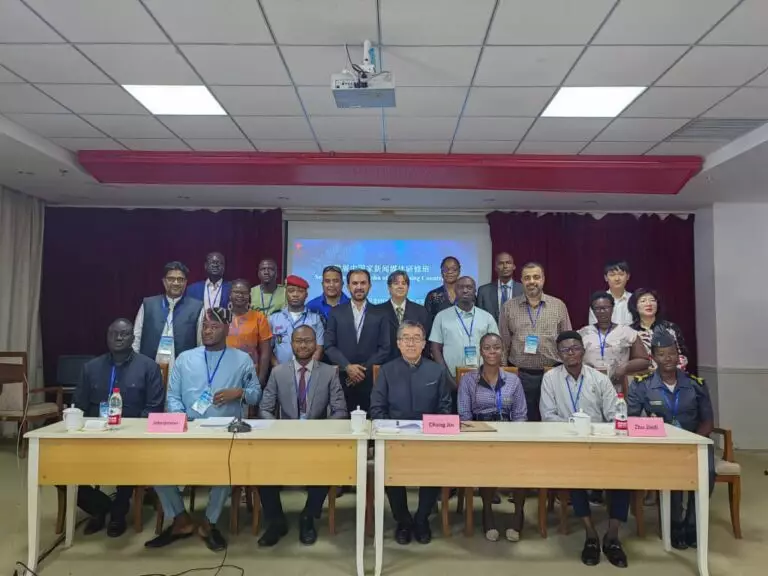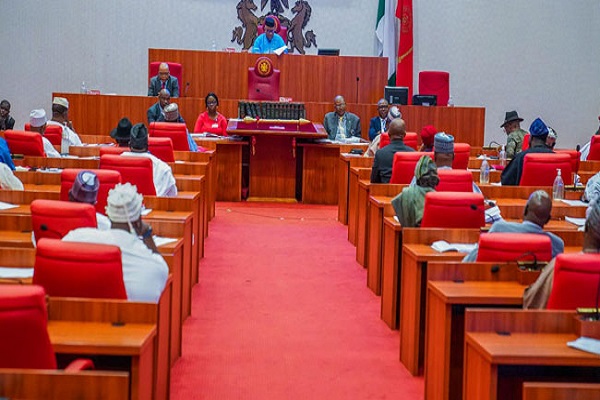News
China trains journalists to enhance quality reportage, foster bilateral relations

The People’s Republic of China on Tuesday in Beijing, began the training of select journalists from developing countries to enhance their reportage and strengthen bilateral relations between China and their countries.
The News Agency of Nigeria (NAN) correspondent participating in the 14-day training in Beijing, reports that the event, which started on Aug. 16 will end on Aug. 29.
The program is sponsored by the Chinese Ministry of Commerce through its International Cooperation Dept. and organized by the National Radio and Television Administration (NRTA) Research and Training Institute (RTI).
Speaking at the event, Mr Chang Jin, Second-Grade Counsel, NRTA, explained that the training was to equip journalists with the knowledge of advanced reporting to foster bilateral relations and people-to-people communication.
He added that the training, which is tagged: ”Seminar on News Media of Developing Countries,” seeks to equip, especially the conventional media practitioners, in the face of the new media, also known as social media.
Jin said: ”In the current day world, the media has a very important role to play in creating common understanding, maintaining peace and promoting joint development.
”The training will also equip media practitioners with the right approach to take in tackling fake news, misinformation and disinformation.
”NRTA sticks to the principle of equality, cooperation and mutual benefit in its relations with all partners in the world.
”We would like to learn from and cooperate with our partners in other countries, and offer assistance on our part in the possible ways we can.”
He also urged participants to pay keen interest during the training and pick up knowledge that would help their countries advance its conventional media like China’s.
“I hope with two weeks’ knowledge sharing, all participants can learn something about China’s experience in its radio, television and online audio-video industry.
“Participants can look towards adopting and promoting the online audio-visual industry to meet with the trend and high demand of the new media.
“I also hope this is a chance for us to facilitate mutual cooperation as well,”Jin said.
Mr Mawugnon Afanou, a participant and Communication Advisor to the Togolese Minister of Communication and Media, who spoke on behalf of all the participants, expressed their gratitude to the Chinese government for the gesture.
He noted that all the participants had great expectations for the training, adding that it would help develop the media sector and further strengthen bilateral relation between countries.
“As representatives of emerging nations, we seize this exceptional opportunity to express our gratitude to the Chinese government for its continued commitment to strengthening media capacities in developing countries.
“In reality, this seminar holds great importance for our region, as it provides a conducive framework for the exchange of experiences and mutual learning in the field of media, particularly leading to the discovery of the Chinese media landscape and its best practices.
“Over the next two weeks, we have no doubt that we will have the privilege of benefiting from the knowledge and expertise of distinguished media trainers and practitioners,’ he said.
Afanou said that participants would utilize the skills which they would acquire in Beijing in promoting journalism professionalism, and the central role of media in the development of their respective countries.
“This initiative reflects the sincere friendship between China and the represented countries here, and we are firmly committed to making good use of these teachings to further contribute to the creation of informed and enlightened societies, in a win-win partnership.
“Furthermore, our gains will not be confined within the borders of China, even though they are, admittedly, immense.
“These gains will serve in our media activities and beyond, benefiting our colleagues with whom we will share them upon our return to our countries,” he added.
Participants were drawn from Bolivia, South Sudan, Burundi, Cameroon, Nigeria, Togo, Kiribati, Laos, Pakistan Sri Lanka, and Tajikistan, among others.
Headline
Prince Harry visits sick Nigerian soldiers in Kaduna

Prince Harry and his team visited the 44 Nigerian Army Reference Hospital in Kaduna to interact with wounded soldiers who are receiving treatment.
The Duke of Sussex is in Nigeria with his wife to champion the Invictus Games, which Harry founded to aid the rehabilitation of wounded and sick servicemembers and veterans.
Nigeria joined the Invictus Community of Nations in 2022 becoming the first African country to join.
Prince Harry’s visit to Kaduna came 68 years after his late grandmother Queen Elizabeth II visited the state during the time of the late Premier of Northern Region Sir Ahmadu Bello.




News
Senate approves death penalty for drug traffickers

Senate on Thursday, May 9, approved the death penalty for those convicted on the charge of drug trafficking in the country.
The punishment prescribed in the extant NDLEA Act is a maximum sentence of life imprisonment.
The resolution of the Senate followed its consideration of a report of the Committees on Judiciary, Human Rights and Legal Matters and Drugs and Narcotics, National Drug Law Enforcement Agency (NDLEA) Act (Amendment) Bill, 2024.
The Chairman of the Committee on Judiciary, Human Rights & Legal Matters presented the report during plenary, Senator Mohammed Monguno (APC-Borno North).
The bill, which passed its third reading, aims to update the list of dangerous drugs, strengthen the operations of the NDLEA, review penalties, and empower the establishment of laboratories.
Section 11 of the current act prescribes that “any person who, without lawful authority; imports, manufactures, produces, processes, plants or grows the drugs popularly known as cocaine, LSD, heroin or any other similar drugs shall be guilty of an offence and liable on conviction to be sentenced to imprisonment for life” was amended to reflect a stiffer penalty of death.
Although the report did not recommend a death penalty for the offence, during consideration, Senator Ali Ndume moved that the life sentence should be upgraded to the death penalty.
During a clause-by-clause consideration of the Bill, Deputy Senate President Barau Jibrin, who presided over the session, put the amendment on the death penalty to a voice vote and ruled that the “ayes” had it.
But Senator Adams Oshiomhole objected to the ruling, saying that the “nays” had it.
He argued that matters of life and death should not be treated hurriedly, but Barau said it was too late, as he failed to call for division immediately after his ruling.
The bill was subsequently read for the third time and passed by the Senate.
-

 Headline5 days ago
Headline5 days agoSuspend cybersecurity levy– Reps to CBN
-

 Headline3 days ago
Headline3 days agoPrince Harry visits sick Nigerian soldiers in Kaduna
-

 Business5 days ago
Business5 days agoNigeria needs over $2bn to revive Ajaokuta Steel Plant, says Minister
-

 Entertainment3 days ago
Entertainment3 days agoAMVCA Cultural Day: BBNaija’s Neo, Venita win Best Dressed Male, Female
-

 Metro3 days ago
Metro3 days agoEx-Sports Minister laments after hospital neglected him for hours over N80000 deposit
-

 Headline5 days ago
Headline5 days agoTinubu resumes work after foreign trip
-

 News5 days ago
News5 days agoShan George’s money returned to Zenith Bank account



